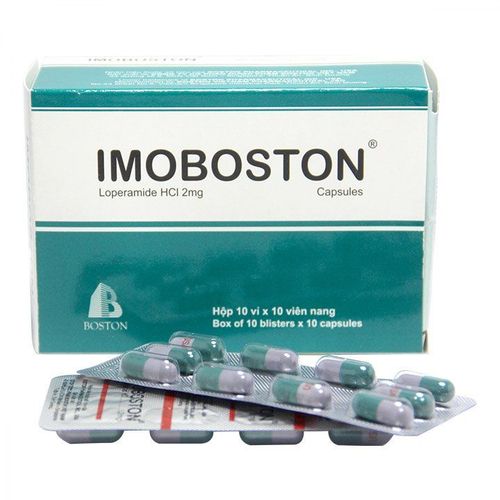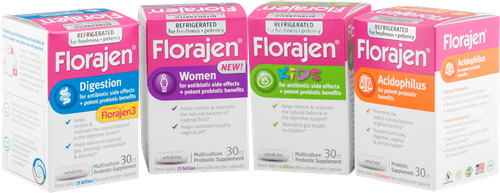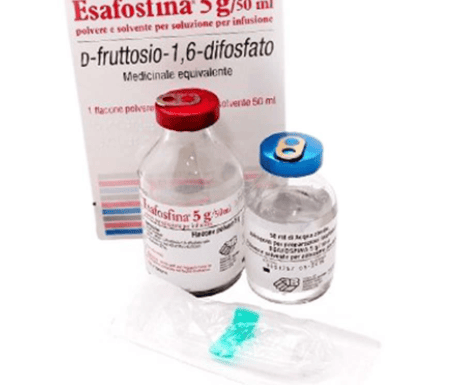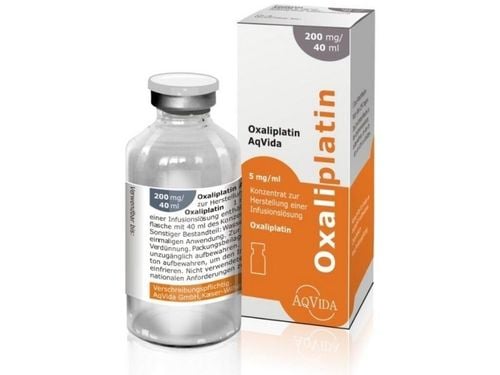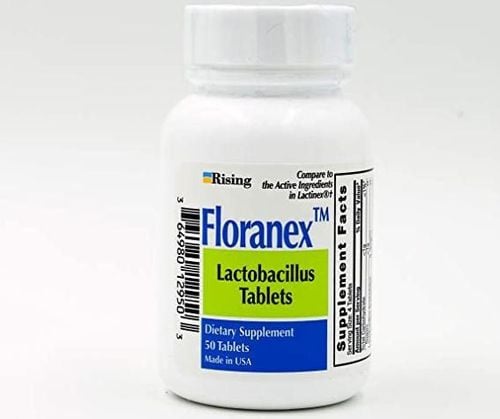This is an automatically translated article.
The article is professionally consulted by Gastroenterologist - Department of Examination & Internal Medicine - Vinmec Hai Phong International General HospitalWhen it comes to bacteria, most people think of them as pathogens that need to be avoided. But actually, our bodies already contain trillions of bacteria. They help us digest food and play an important role in health. Your gut bacteria are also tied to your probability of developing certain diseases like diabetes, obesity, depression and colon cancer.
1. What is gut bacteria?
Inside your gut there are 300 to 500 different types of bacteria, containing nearly 2 million genes. These bacteria combine with other tiny organisms such as viruses and fungi to create a microbiome known as the microbiota or microbiome.
Like fingerprints, each person's microbiota is unique. The mix of bacteria in your body is different from the mix of bacteria in everyone else's body. Your microbiota is partly determined by your mother's microbiota - the environment you were exposed to at birth, the rest from your diet and lifestyle.
Are gut bacteria important? The answer is yes. There are bacteria all over your body, but the bacteria in your gut can have the biggest impact on your health. They are present throughout your digestive system, but are concentrated in the small and large intestines. They affect everything from your metabolism to your mood and your immune system.
2. The relationship between gut bacteria and disease
Studies show that the gut bacteria in healthy people is different from the gut microbiota of people with certain diseases. People who are sick may have too little or too much of a certain type of bacteria, or they may lack many of them.Scientists think that there are certain types of bacteria that can protect you against disease, while others may increase your risk of certain diseases. Scientists have begun to find a link between gut bacteria and the following diseases:
Obesity, type 2 diabetes and heart disease: your gut bacteria affect metabolism of body. They determine things like how many calories you get from foods and what types of nutrients you get. If you have too much gut bacteria that can cause you to turn fiber into fatty acids. This can cause a buildup of fat in your liver. This leads to a number of metabolic disorders that can contribute to diseases such as type 2 diabetes, heart disease and obesity.

Quá nhiều vi khuẩn đường ruột là tác nhân gây nên béo phì
Inflammatory bowel diseases, including Crohn's disease and ulcerative colitis: patients with these conditions are thought to have lower levels of certain types of gut bacteria that are resistant to inflammation. The exact relationship of this connection is still unclear. But it's thought that certain bacteria can cause your body to attack your intestines and set the stage for these illnesses. Colon cancer: studies show that people with this disease have different gut microbiota. They often have higher levels of disease-causing bacteria than healthy people. Anxiety, depression and autism: The gut contains many nerve endings that connect to the brain. Studies have suggested a link between gut bacteria and central nervous system disorders such as anxiety, depression and autism spectrum disorder. Arthritis: Scientists think that patients with rheumatoid arthritis may have higher numbers of bacteria associated with inflammation than those without the condition.
3. How can you have a healthy gut microbiome?
When beneficial microorganisms in your body are healthy, they help prevent the invasion and growth of harmful microorganisms. Beneficial gut bacteria also help protect your body from harmful foods or contaminated water.
Therefore, to have good health, do not forget to take care of your microbiome. To do this, you need to do the following:
Start by eating a nutritious diet rich in fiber such as vegetables, whole grains and fruits. A Western-style diet high in fat and sugar and low in fiber can destroy certain types of gut bacteria, causing your microbiota to lose variety. Limit the use of antibiotics: because antibiotics can wipe out disease-causing bacteria, but it also destroys healthy bacteria that are beneficial to your health. Therefore, only use antibiotics when absolutely necessary as prescribed by the doctor. Exercise can stimulate the growth of many types of bacteria in your gut. Having a diverse gut microbiome promotes better health, which in turn helps reduce the risk of certain diseases.

Tập thể dục giúp kích thích hệ sinh vật đường ruột đa dạng hơn
You can take some medicines or supplements made from a certain strain of gut bacteria early to reduce your risk or maybe even cure certain diseases.
Not all types of gut bacteria are harmful to health, on the contrary, there are many types of gut bacteria that are supporting and protecting us from a number of diseases. Having too much or a lack of one or more types of bacteria will cause an imbalance of the microbiome in the body, which can increase the risk of a number of diseases, not only gastrointestinal diseases but also other diseases. .
Please dial HOTLINE for more information or register for an appointment HERE. Download MyVinmec app to make appointments faster and to manage your bookings easily.
Articles refer to the source: Webmd.com




